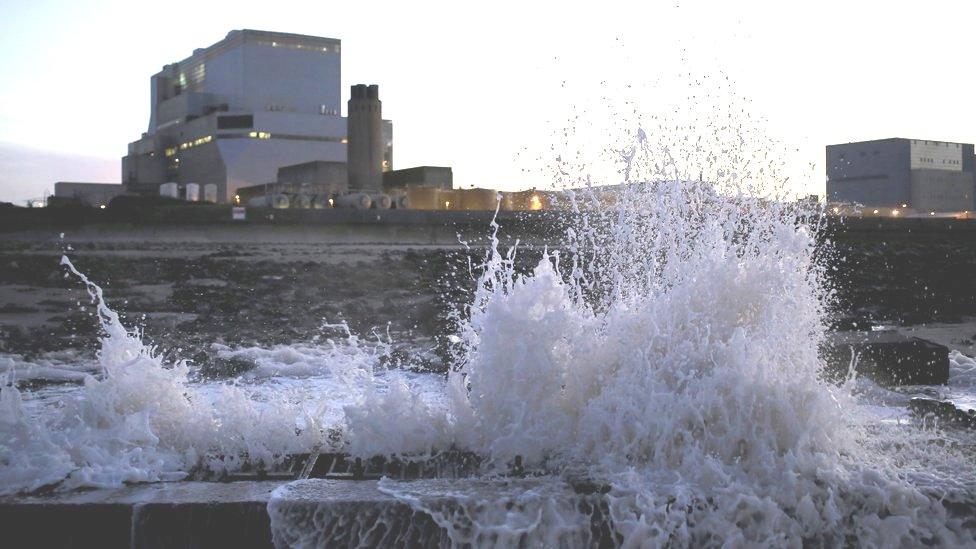EDF 'confident' Hinkley Point nuclear power station will go ahead
- Published
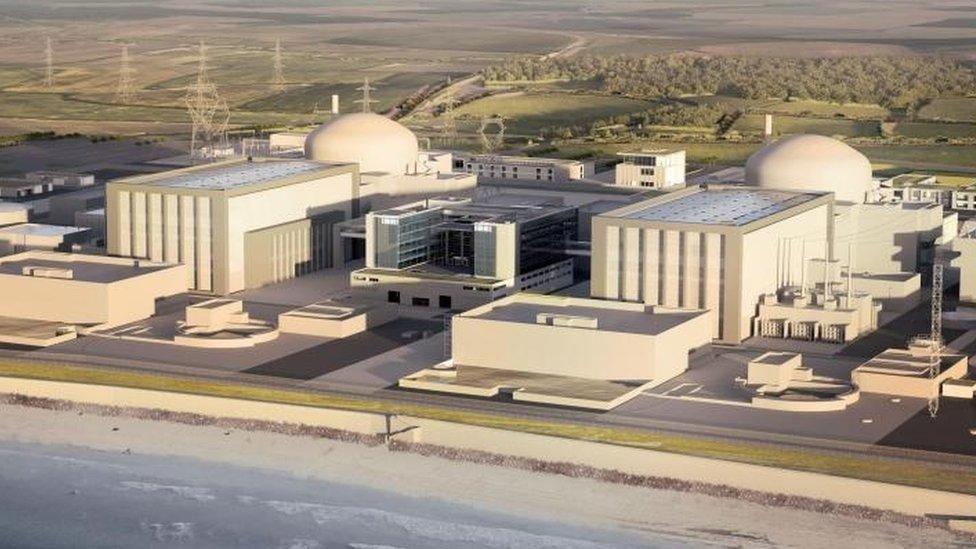
The new nuclear plant will be built next to two existing facilities at Hinkley Point in Somerset
Energy firm EDF has said it remains "confident" the £18bn Hinkley Point nuclear power plant will go ahead despite uncertainties over its funding.
In a letter to staff, the company's chief executive Jean-Bernard Levy said the project needed to secure more funding from the French government.
He said the financial context was "challenging" and he was negotiating with the French state.
The UK government said it was "committed" to Hinkley.
'Good project'
Mr Levy said: "We are currently negotiating with the French state to obtain commitments allowing us to secure our financial position.
"I am sure that this project is a good project for the group and that in the near future, all the conditions will come together for it to be definitely launched.
"It is clear that I will not engage EDF in this project before these conditions are met."
The company, which is 85% owned by the French government, is expected to finalise in April how it will fund the project after postponing the decision a number of times. It was delayed in January reportedly owing to funding difficulties.
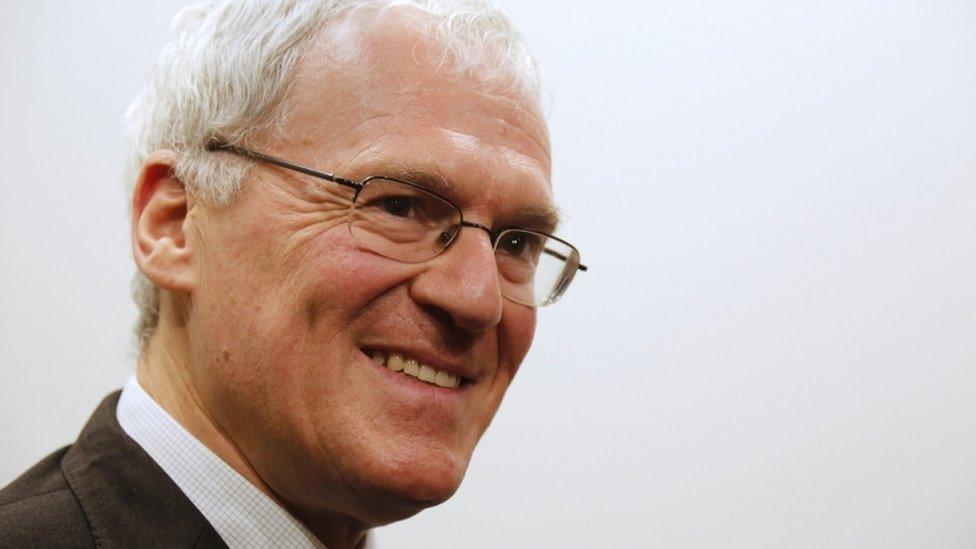
EDF's chief executive Jean-Bernard Levy said the project needed to secure more funding from the French government
But Mr Levy highlighted in his letter that China General Nuclear Power Corporation (CGN), which will own 33.5% of the project, was investing about 8bn euros (£6bn).
He also expressed his confidence in EDF to manage "very large projects".
BBC business editor Simon Jack said the situation was like "a high stakes game of poker".
Some analysts are concerned the project could threaten EDF's financial viability but it would be "incredibly embarrassing" for the British government if the plant didn't go ahead.
Our editor said: "[French president] Francois Hollande and David Cameron shook hands over this and it's a central piece of the UK's energy policy going forward, but the French government, the French unions and many French people are very worried that it could break the financial stability of the company that is building it."
In light of the construction cost, the UK government has guaranteed it will pay £92.50 per megawatt hour for electricity from Hinkley, more than double current the wholesale electricity price of about £37 per megawatt hour.

Analysis
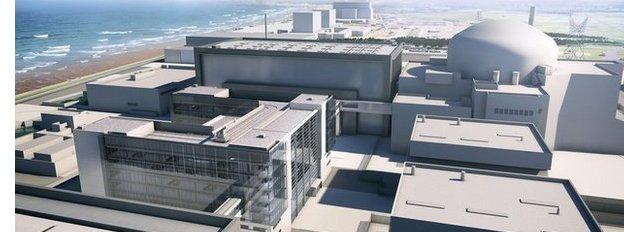
By Simon Jack, BBC News business editor
Imagine British Gas owners Centrica got into financial trouble after sinking billions into a French power station. And then imagine that the bill for rescuing it fell on to taxpayers. That is essentially the risk facing EDF and the French government.
The dangers to the company's financial integrity are great enough to prompt EDF's chief financial officer to resign in protest, the French equivalent of the National Audit Office to issue stark warnings and French unions to lobby their members to vote against the project.
To make matters worse, EDF's recent track record in delivering big projects is poor. Reactor construction in France, Finland and China have run over time and massively over budget.
The prize for EDF with Hinkley Point is a guarantee to provide electricity for decades at three times the current price. The deal is still on but the stakes are high as a crucial EDF board meeting later this month approaches.

Angus McNeil, chair of the energy and climate change committee, told BBC Radio 4's Today programme the entire scheme was a "very expensive deal" which had suffered "major delays".
He said it was plausible the government could ultimately pull out of the deal, or carry on with caveats. He said his committee's scrutiny of the project would "go where the evidence takes us".
Construction of Hinkley Point C in Somerset, the first new nuclear plant in the UK for 20 years and the most expensive in the world, is due to begin in 2019, two years after it had originally been due to open.
But Allan Jeffrey from the Stop Hinkley campaign group said he did not believe the scheme would ever go ahead and campaigners had grave concerns about nuclear power.
'Jeopardise future projects'
He said: "There are so many problems - construction, technical and incredible financial problems.
"Nuclear power is an old fashioned form of energy where you throw away most of your energy, it's dangerous and risky and open to terrorist attacks. It's like having a nuclear bomb on site.
"We should be looking at Plan B which should be getting on with sustainable, renewable energy, why not use all the natural energy that's all around us?"
Simon Taylor, an economist at Cambridge University, said the letter from Mr Levy showed he was looking for reassurances from the other stakeholders.
He said: "For them to put the French taxpayer on the hook for a project to supply very expensive electricity to the UK doesn't look economically attractive or politically attractive."
He said it would be "very embarrassing for the French government to cancel this" but a pull-out from the UK side could also "cast doubt on the UK's entire energy policy" and jeopardise future projects.
Earlier this month, EDF's finance director Thomas Piquemal quit reportedly because he feared the project could jeopardise the company's financial position.
And in February, Chris Bakken, the director of the project, said he was leaving to pursue other opportunities.
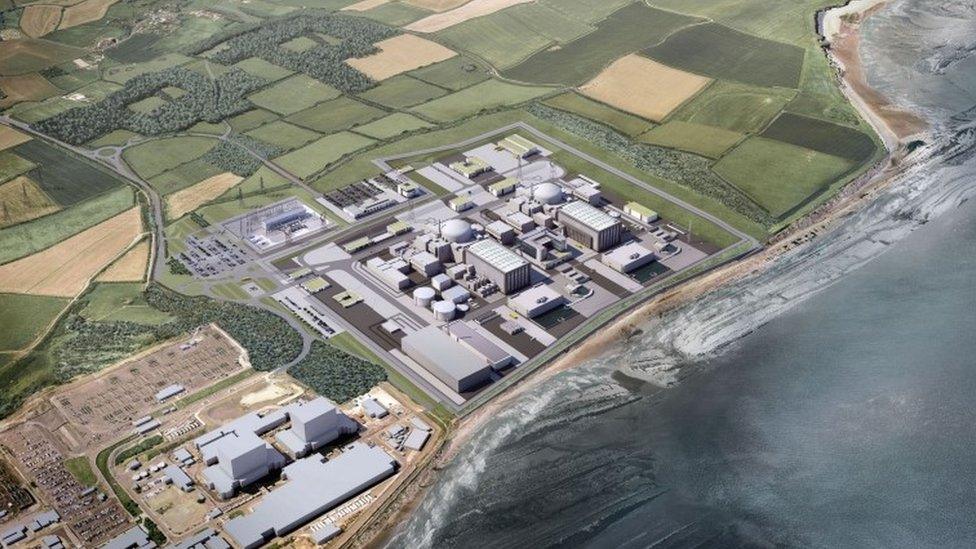
Artist's impression of Hinkley Point C building proposals
Development has also been hindered by problems with a reactor.
European Pressurised Reactors (EPRs), in use in Flamanville, France, were found to have a construction fault meaning they were unable to handle the required pressure.
This pushed the Hinkley Point delivery date back as safety concerns were addressed.
A Department of Energy and Climate Change spokesman said: "The British government is committed to Hinkley and committed to new nuclear.
"It is the only proven low-carbon technology that can provide continuous power, irrespective of whether the wind is blowing and the sun is shining. The industry will create thousands of jobs and benefit companies in the supply chain."
- Published7 March 2016
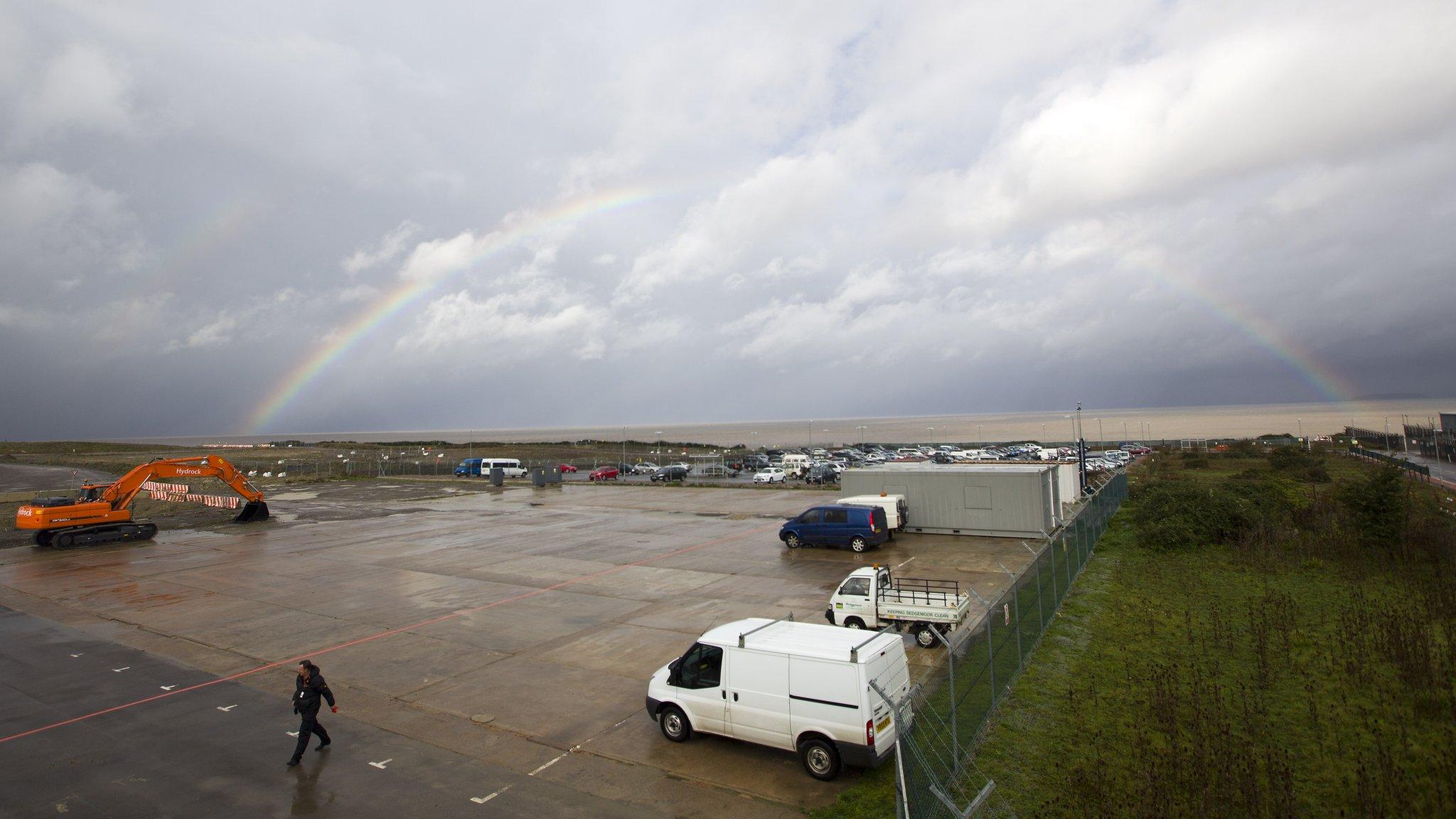
- Published7 March 2016

- Published1 March 2016

- Published27 February 2015
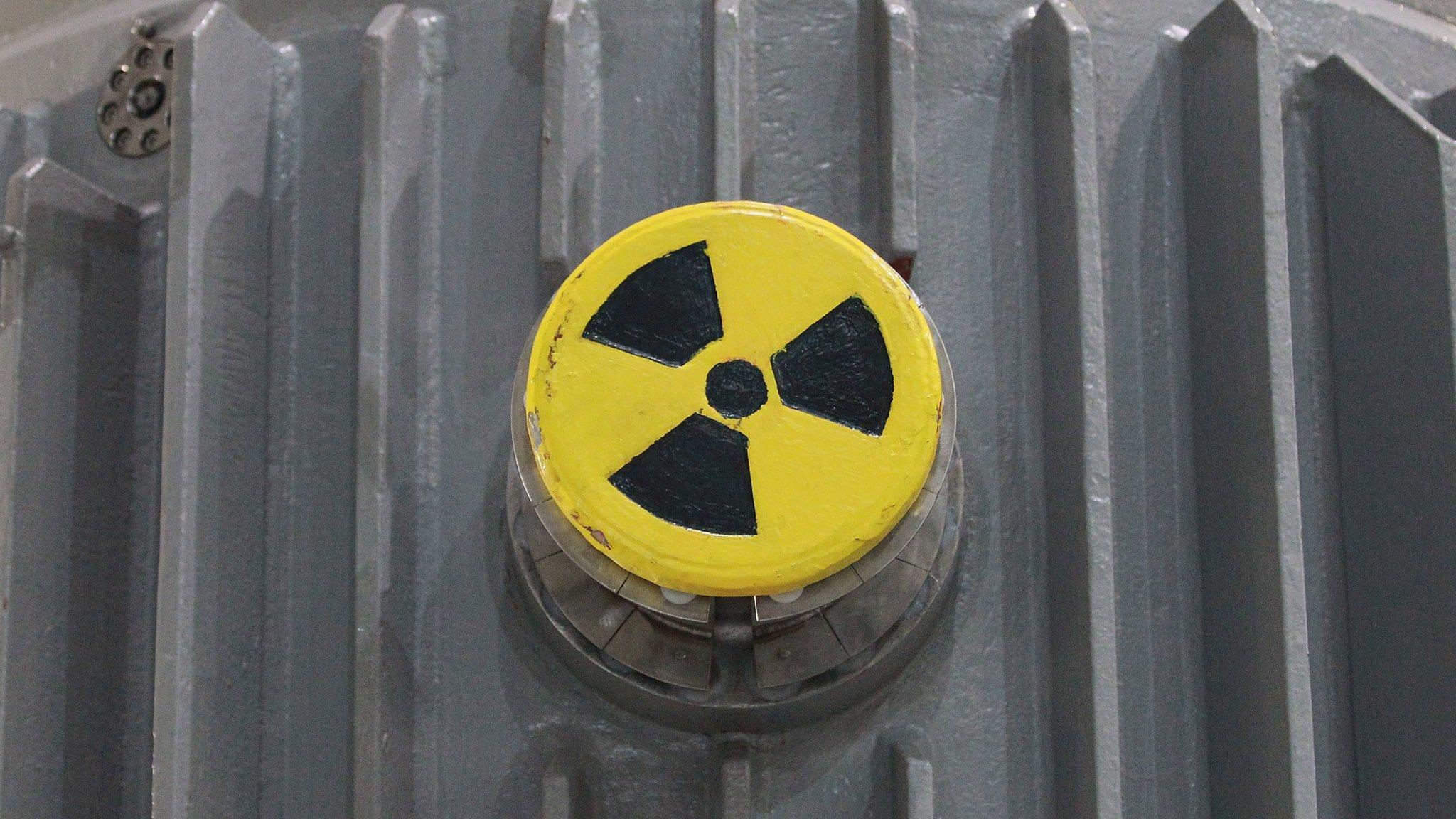
- Published27 January 2016

- Published25 September 2015
